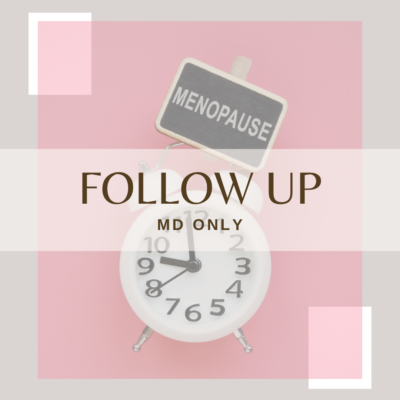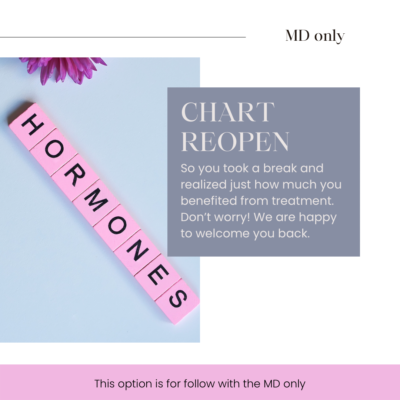It happens every spring and into the summer for many of us but when fall hits we automatically think that these exact same symptoms must be a cold… but is it? With cold and allergy symptoms often being the same, right down to the achy feeling of a cold, it is often hard to tell the difference.
Let’s take a look at what happens in the fall. Ragweed is the biggest allergy trigger in the fall. Though it usually starts to release pollen with cool nights and warm days in August, it can last into September and October. About 75% of people allergic to spring plants also have reactions to ragweed. So what are the symptoms and what can you do?
Itchy, watery eyes that are red and swollen. Sneezing, coughing, wheezing (asthma symptoms can be seasonal allergy induced). Aches that feel like they are coming from deep in your bones, a headache that just wont quit, runny nose and sometimes you might even feel like you are suffering a slight fever. Sounds like a common cold to me…. but it’s allergies.
- Buy a dehumidifier.
- Check pollen levels.
- Wash your clothes after each use, pollen sticks to shit and that can be an issue.
- Avoid hanging clothes outdoors to dry.
- Boost your histamine degrading enzyme DAO (found in olive oil), seriously I shoot the stuff like it’s tequila.
- A good quality probiotic for 30 days taken at night (to support the liver) I like this one. Also look into soil based probiotic, remember to mix it up. (80% of our immune system comes from the gut…)
- Buy hypoallergenic filters.
- Don’t open your windows for fresh air when the pollen levels are at their highest (thats part of the reason to check the levels)
- Use an air conditioner at night.
- Use a neti pot (you can even add 1 tsp of apple cider vinegar to this for allergies, it’s a sinus flush)
- See a functional medicine doctor, holistic practitioner or herbalist if needed.
Do you live near a farm? Smell the cow shit in the air in the fall? Yup that is a huge contributing factor to what’s happening with your fall allergies. I live in the city but for a few weeks every year the smell in the air is ‘fresh’, and with it comes itchy eyes, coughing and sometimes a feeling of general lethargy… unless I shoot back copious amounts of olive oil! You can check out studies on this here
Watch out for histamine inducing foods, and consume antihistamine foods and beverages. Olive oil contains DAO (diamine oxidase), an enzyme that helps prohibit histamine intolerance symptoms. Supplements like quercetin work well but need to be take long term (hint: onions, cruciferous vegetables, green tea and shallots all contain this). For some consuming raw local bee pollen from the fall season helps by up to 60%.
Stinging nettle tea is especially good for hay fever seeing as it naturally controls histamine, you can get this at a local health food store.
Eucalyptus oil in a neti pot can also be fantastic, I prefer to use a diffuser to inhale it. This one is fantastic for house/dust mites which is one of the most common household allergies around. Allergies and histamine are like a bucket of water, if the bucket is already full all it takes is a few drops to make it overflow. The trick is to keep it managed all year round.
The intestinal mucosa is a protective layer in our gut, not only does it contains mass amounts of enzymes needed by our body to digest our food, it also is needed by our body to absorb nutrients in our food. Since DAO is one of the key enzymes produced it is important to make sure we are getting adequate amounts. DAO also protects us against histamine buildup.
Protein; this is responsible for the release of DAO in the gut, this means it attacks the histamine in the gut.
FAT; more importantly oleic acid (found in good quality, high polyphenol count olive oil), releases DAO into the bloodstream. This attacks the histamine in the whole body. While MCT oils, such as coconut oil, are beneficial on many levels; they just don’t release adequate amounts in this regard. Let’s stick to olive oil for this purpose.
Why we don’t want to reach for OTC cold meds. New research shows that medicating a cold, flu or worse allergies may be causing a rise in the frequency of the common cold. You might mask the symptoms and feel like you are better, but in reality you are not better but rather have put on a bandaid. Prefer to medicate anyway? There’s also some evidence to suggest that fever-reducing drugs can increase a process called viral shedding, which is how viral particles that can spread the flu or a cold get released into the environment to get other people sick. The more viral particles people shed, the more infectious they are. SO let’s not be selfish…. drink that soup and stay home.
What is that cold med really doing to your system?
Ibuprofen and Aspirin: these can make IBS symptoms worse and in some cases have been proven to be the cause and development of IBS, in the first place. They irritate the gut by disturbing the mucosal barrier (the barrier between the inside of the gut and the rest of the body), this is what helps us absorb nutrients and stops germs from passing through to the gut as a result the intestinal flora can become unbalanced. In most, this just causes a mild irritation but for those with sensitive tummies it can wreak havoc on your digestion for weeks.
Cough medicine and lozenges: Sore throat and flu syrups also need to be avoided. Not only do they contain copious amounts of sugar (The common Honey and Lemon Strepsils Lozenges, are packed with sugar, for a 12 pack, there is 36g that’s 9 teaspoons of sugar), they can also contain dextromethorphan, which can cause diarrhoea, and if you follow a low FODMAP diet, they contain most of the binding agents you can’t have (including honey). Sugar also creates leaky gut…
Cough syrup is also known to destroy the happy microbial balance of our gu leading to leaky gut, you can read more from The Functional Medicine University here.
OK back to allergies. Once you go through a few seasons (typically two) you will start to notice your body, when given the right tools, will actually start to solve the allergy issues itself. Keep the olive oil flowing, add in some allergy reducing teas, try some pine bark tincture (like this one) which is amazing or the asthma and allergy symptoms in the fall. Remember that your gut is key to avoiding severe allergy symptoms so build your gut up and see how well you tolerate those allergies next season.






Hi! I just found you yesterday and have really appreciated your posts on histamine! Thank you so much! Do you have a favorite olive oil or criteria I can use to find a good one for the DAO benefit?
Thank you again!
Hi Kathryn,
I’m happy to hear you are enjoying my posts, I’ve attached a link to one of my protocols.Have a look! I stopped using olive oil for DAO a while back when I swapped over to a carnivore lifestyle but if you are looking or good options head over to a true olive oil bar. Those are where you will find the ones with a high polyphenol count (the higher it is the better it is for DAO production). I haven’t found store bought ones to have a content high enough so specialty stores will be your best bet (I opt for a DAO supplement when needed)
https://ca.fullscript.com/protocols/hollywarnerhealth-histamine-buster.